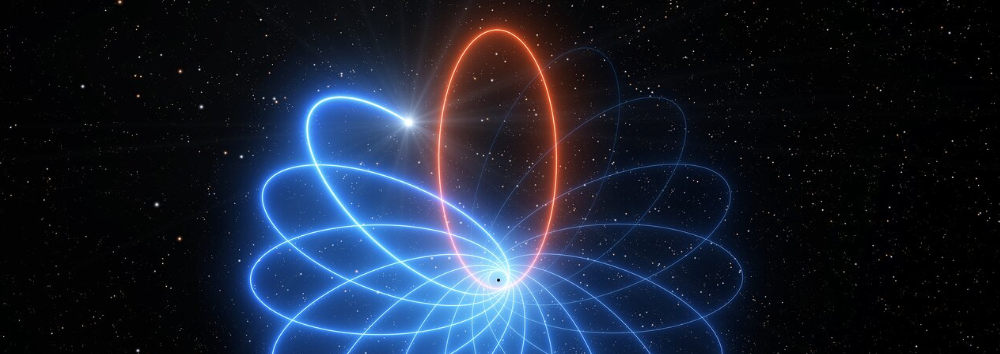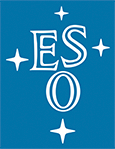© European Southern Observatory
“Einstein’s General Relativity predicts that bound orbits of one object around another are not closed, as in Newtonian Gravity, but precess forwards in the plane of motion. This famous effect — first seen in the orbit of the planet Mercury around the Sun — was the first evidence in favour of General Relativity. One hundred years later we have now detected the same effect in the motion of a star orbiting the compact radio source Sagittarius A* at the centre of the Milky Way. This observational breakthrough strengthens the evidence that Sagittarius A* must be a supermassive black hole of 4 million times the mass of the Sun,” says Reinhard Genzel, Director at the Max Planck Institute for Extraterrestrial Physics (MPE) in Garching, Germany and the architect of the 30-year-long programme that led to this result.
Located 26 000 light-years from the Sun, Sagittarius A* and the dense cluster of stars around it provide a unique laboratory for testing physics in an otherwise unexplored and extreme regime of gravity. One of these stars, S2, sweeps in towards the supermassive black hole to a closest distance less than 20 billion kilometres (one hundred and twenty times the distance between the Sun and Earth), making it one of the closest stars ever found in orbit around the massive giant. At its closest approach to the black hole, S2 is hurtling through space at almost three percent of the speed of light, completing an orbit once every 16 years. “After following the star in its orbit for over two and a half decades, our exquisite measurements robustly detect S2’s Schwarzschild precession in its path around Sagittarius A*,” says Stefan Gillessen of the MPE, who led the analysis of the measurements published today in the journal Astronomy & Astrophysics.
About ESO
ESO, the European Southern Observatory, is the foremost intergovernmental astronomy organisation in Europe and the world’s most productive astronomical observatory. ESO provides state-of-the-art research facilities to astronomers and is supported by Austria, Belgium, the Czech Republic, Denmark, Finland, France, Germany, Italy, the Netherlands, Poland, Portugal, Spain, Sweden, Switzerland and the United Kingdom, along with the host state of Chile. Several other countries have expressed an interest in membership.



